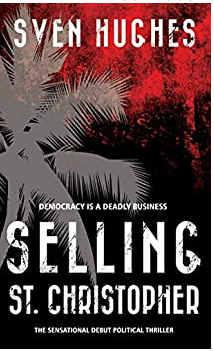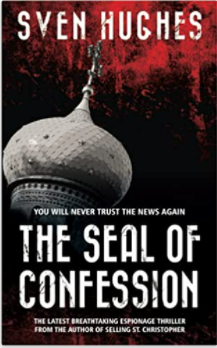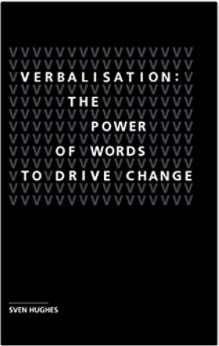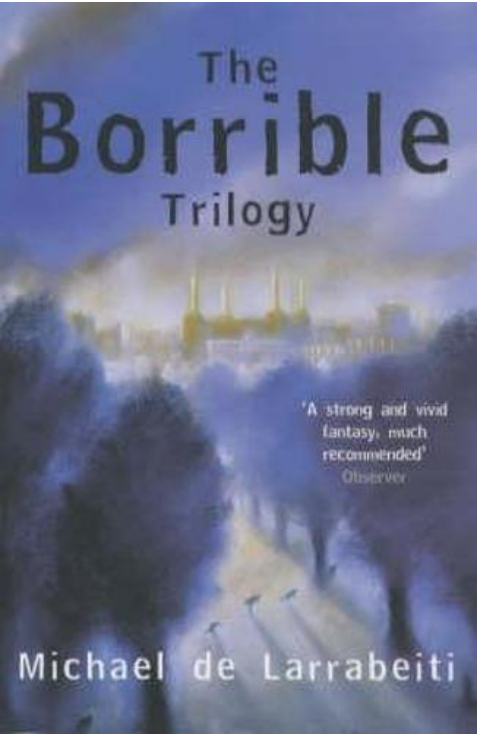This week we talk to author, corporate communicator and political strategist, Sven Hughes
Q: Hi, Sven Hughes, how are you doing? What did you get up to this year?
I am just sitting down to write my third novel – the final instalment in the series.
Q: Selling St. Christopher, your debut novel, is a political thriller. It’s easy to conclude that your career in election campaign strategy inspired you, but was there a point at work where you stopped and thought, “I have the makings of a great story here”, or did it become apparent in hindsight?
It’s certainly true to say that the day-to-day reality of fighting elections can be inspiring. Witnessing the hidden hands of global power emerge from the shadows, even momentarily, is instructive. Similarly, being surrounded by people under such prolonged emotional pressure always reveals important human truths. Having said that, writing about this industry is often a matter of deciding what to leave out and what to tone down. Readers would be unlikely to believe the unvarnished truth, however accurately it was documented.

Q: Now you have published your next story, The Seal of Confession. How did you navigate that ‘tricky second novel’, or did that thought even occur to you?
There’s a lot of nonsense written about the difficulties of the second novel. It’s no different from the first. As with all writing, it’s a matter of preparation and then carving out the necessary quiet time to sit down and suffer at the keyboard.
Telling the story of British Secret Service operator, Clemmie, and her team, who are investigating the London murder of a Russian Orthodox priest, was actually very satisfying.

Q: You began your career in the creative industries, moving from copywriting to creative direction. Books2All is all about showing how education develops literary skills and creativity to open career doors. How did your early communication roles lead you into the military and political arenas, and did they feel like a natural progression?
I am extremely committed to the Books2All belief that reading can empower and enfranchise. There is no doubt in my mind that well-read employees make the best employees, irrespective of the specific job description. If people don’t read, then it’s unlikely that they are either intellectually curious or emotionally intelligent… in which case, they are of very little use to the creative/strategic communications industries.
Q: As you’d expect, we love the title of your first book: Verbalisation: The power of words to drive change. It’s obviously for a corporate audience, but could you temper the main themes into a message for the modern classroom?
Yes, the underlying idea of Verbalisation is relevant to any classroom. The book discusses and demonstrates the importance of approaching conflict situations with a belief in ‘dialogue over division’. If history has taught us anything, it is that tensions and conflicts can only ever be fully resolved by getting people around the table to discuss and agree on an acceptable peace. I like to think this is one of the essential things we should be teaching our children.

Q: We note that, in your current role, heading up a strategic communications agency, you incorporate psychology and ethics into your business methodology. What pitfalls are you protecting your clients from that an ambitious young person needs to know of when hoping to use their creative talents for a real-world purpose?
The legislation is not currently in place to ensure that companies and individuals do not cross the moral line regarding the strategic communications industry. There are many complex reasons for this lack of due oversight. However, the reality remains that it is often for the stratcoms professional themself to decide which contracts to accept and which techniques to use, in the name of ‘influence’. It is all about having a clear moral compass. Books2All can play an important role in ensuring that young people have enough historical knowledge and role models to help them make the right decisions for themselves.
Q: 1 in 8 schools across Britain do not have a library – have you had experience of the educational inequality within the school system or met anyone who has?
Well, one thing we can all do is to support Books2All. Additionally, as parents, when our own children have finished reading a book, it is always worth asking the school whether they would like to have it for their library. That is what we do as a family, and the school seems happy to accept these donations to bolster their existing stock.
Q: What book or books do you think all children in schools should be given to read?
The Borrible Trilogy by Michael De Larrabeiti. I was lucky enough to know this wonderful novelist and read his many books while growing up. He was a scintillating man, and his unconventional lifestyle and razor-sharp mind come through in his writing. All three books in the series are deliciously edgy and provide a refreshing alternative to today’s popular choices. They inspire children to think beyond the conventional.

Q: Ok, so the final question Sven Hughes – if all the libraries in the world were burning and you could only save three books, what would they be and why?
Fathers and Sons by Ivan Turgenev, for its inter-generational tensions. It speaks to underlying human truths that are just as fresh today as they were in the Russia of 1862. The Spy who Came in from the Cold by John Le Carre. We recently lost ‘the gaffer’, but his work lives on. His clipped dialogue and searing cynicism still set the standard. A masterclass. How Spies Think: Ten Lessons in Intelligence by David Omand. The author has a delicate style that belies his fearsome intellect. Essential reading to arm yourself against ‘fake news’.
Thank you for visiting our blog. Our vision here at Books2All is a world where every child finds the books that help them reach their true potential. If you have spare books in good condition at home that you think might be appropriate for school children or represent a school and would like to register to receive donated books, please download the Books2All app from the App Store or Google Play.

